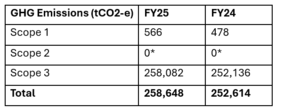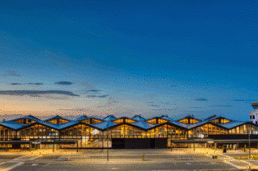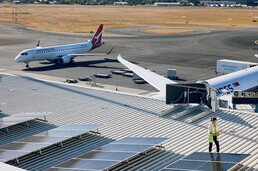
Wellington Airport’s annual climate reports released
- 2025-06-27
Wellington Airport has released its annual climate-related disclosures today, outlining good progress towards reducing greenhouse gas (GHG) emissions.
The disclosures outline how the airport is preparing for the impacts of climate change and playing a supporting role in the decarbonisation of the wider aviation sector.
Highlights from the last financial year included:
- Achieved Airport Carbon Accreditation Level 4+
- First shipment of Sustainable Aviation Fuel at Wellington Airport used by Air New Zealand
- Continued work to provide electric charging for Air New Zealand’s Alia BETA electric aircraft
- Progressing design and planning work to upgrade the southern seawall
- Procurement of local carbon offsets to cover all FY25 Scope 1 and Scope 3 (business travel) emissions
Wellington Airport has also released its annual Greenhouse Gas Emissions Inventory, showing Scope 1 and 2 emissions have reduced 38% since FY17, or 68% when including certified renewable energy.
Our analysis shows Wellington Airport is on track for its target of Net Zero by 2030 despite an increase in Scope 1 emissions from FY24, mostly due to increased heating during an unusually cold winter last year and refrigerant top ups. A decrease in Scope 1 emissions is expected once the gas boilers in the terminal are replaced.

*With the purchase of 100% certified renewable electricity through Ecotricity, market-based Scope 2 GHG emissions are zero.
Scope 3 emissions have increased 2.4% in FY25 due to an increase in emissions from fuel used by aircraft and increased construction work.
Emissions from natural gas are down 46% since the base year of FY17, while airside vehicle fuel emissions are down by 44% thanks to switching to EVs and hybrids.
Wellington Airport’s chief executive Matt Clarke says the airport remains on track to achieve net zero emissions for its own direct operations by 2030.
“This reflects a lot of hard work from our team to improve how we operate and reduce the emissions we can directly control. Regular progress and transparent reporting are also key to making genuine progress.
“As always, there is more work to be done - especially on supporting airlines with their decarbonisation journey.”







